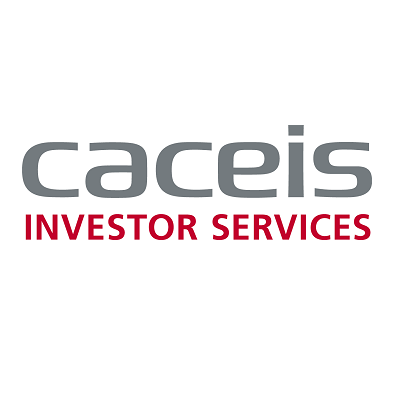Arnaud Misset, Chief Digital Officer at CACEIS discusses the latest trends in the digital space – from artificial intelligence to tokenization and what that means for CACEIS as an asset servicer.
Arnaud has been working for CACEIS since 2011, focusing on the development of products and digital solutions for clients. Arnaud launched the 3D team - ‘digital’, ‘data’ and ‘dissemination’ – which embeds product, digital, product marketing and client support across all CACEIS’ digital tools. Arnaud’s team leverages a build, operate and transfer approach to digital innovation.
"Each time we see new technology emerging, and we think it could add value to our clients, we build something, and we test it first.
If it works and it has to be of scale, we transfer it to the appropriate business line."
How are CACEIS getting involved in tokenisation?
When looking at how we innovate, we always keep in mind four different fields: regulation, client demand, competition, and our own creativity.
 With this in mind, we’ve been involved in a range of early initiatives on tokenization of financial instruments. For example, we have been working with CACIB (Crédit Agricole Corporate & Investment Bank) on tokenised bonds and we’ve been testing tokenisation with Banque de France on digital euros.
With this in mind, we’ve been involved in a range of early initiatives on tokenization of financial instruments. For example, we have been working with CACIB (Crédit Agricole Corporate & Investment Bank) on tokenised bonds and we’ve been testing tokenisation with Banque de France on digital euros.
We clearly see this as an emerging and growing area as it relates to functions such as information technology, operations and risk management. For CACEIS, this meant selecting Taurus as a partner, which brings significant experience and know-how in digital assets within the financial services landscape. Handling processes like corporate actions in a tokenised world will become important to master. In 2023, CACEIS was also the first custodian in France to obtain a PSAN registration (Digital Assets Service Provider) by France’s Financial Markets Authority. This was an important step and led CACEIS to work alongside CACIB and SEB for a blockchain-based green bond issued by the European Central Bank.
What changes did you have to get equipped with when compared with traditional finance?
To begin with, CACEIS obtained its Digital Assets Service Provider registration, as outlined above.
This is a significant change.
Once you have the system to operate, you have new rules to be defined when looking at operations, compliance and risk. It’s also not one single blockchain, but many different blockchain protocols that require connection with each other . Another major difference is about the issuer: When we talk about traditional finance you always know who the issuer is but when talking about cryptocurrency for instance, the issuer is the IT protocol itself.
We had to be equipped with all systems for custody as well as developing new systems for compliance and risk. In that field, you have to not only manage KYC, but also KYT – know your transactions – and KYA – know your address.
You should be able to retrace where the money is coming from, and how it goes from one wallet to the other. If one wallet is flagged as suspicious, you have to raise your hand and say ‘I’m not sure if I’m willing to accept this transaction’.
We also see the role of custodians becoming more important as tokenisation develops. They play an important role in the value chain today. However, their role changes when it comes digital assets. It will evolve to managing the access to the asset (the private key) rather than holding the asset itself in the traditional way. That’s a really important difference to where we are today, although it is still safekeeping.
"In practical terms, we will provide secure storage for our clients’ private digital keys, leveraging state-of-the art technology."
How did the team go about introducing tokenization for corporate actions?
If you’re coming from the pure cryptocurrency world, you won’t know what a corporate action is. This was the reason we decided to partner with Taurus, our platform for digital assets. Taurus is funded by former bankers, which means they understand the concepts around finance .
To manage corporate actions you have to be able to use smart contracts. These are IT programs in which every step in the lifecycle of a security will be pre-entered, pre-programmed. This is sometimes referred to as programmable finance.
To manage both a tokenized instrument and the traditional lifecycle of a security, you have to go through a smart contract. Some libraries of smart contracts already exist. However, as they’re registered in the blockchain, if they’re not correct from the beginning, they’ll have to be republished again. This is because once it’s published in the blockchain, you cannot modify it.
It’s important to work with people who know what a corporate action is to be able to program a smart contract well, right from the start.
Another exciting topic is artificial intelligence. What is CACEIS doing in this field?
We started with AI a few years ago, with predictive models. We started with a mailbot and an automatic reader for prospectuses.
We developed everything on our own, with open-source algorithms. The lessons learned were really simple. Everything was about training the model. If you train it with a huge number of cases, it works well. If you train it with a small number, it will never work.
We’ve also developed a 2024-2025 roadmap that will prioritise the use cases of different operational lines focusing on operational efficiencies
When looking at the needs of clients on a day-to-day basis, how can AI help them with that?
There are different ways to enhance client satisfaction. For instance, we work with Large Language Models models, whereby you simply enter your question and the AI tool will find the answer for you. Solutions like this can help provide quicker responses to client questions.
The team has also recently developed Pick-AI which can extract specific data from text-based PDF documents. This will initially be used to process client fund invoices and will allow CACEIS to handle ever-growing volumes with greater speed and accuracy.
AI is also a precious tool for the operational lines when it comes to efficiency. Clients will get what they want easily and quickly. We’re also leveraging the next generation of RFP software that leverages AI to help teams be responsive to due diligence questionnaires.
What are the risks of AI?
We have to keep in mind that AI is never 100% accurate. Human beings are still heavily needed to review certain cases. In some cases, the model is certain that it’s right, However, sometimes mirages occur because AI will never say ‘I don’t know’. It could be wrong, but it’s well-written and in a form that you think it’s right. So you have to pay attention.
Are there any final closing messages you would like to convey?
The client is always key – we must not lose sight of how digital solutions can help our clients meet their evolving needs. For example, we launched CACEIS Connect Store, a proprietary platform that brings together market-leading fintechs to provide clients with a range of digital solutions to meet their specific requirements. We are focused on integrating around five new fintech partners each year.
The emergence of central bank digital currencies is a really important step. The Bank of England, for example, is looking at the case for a central bank digital currency, as are other central banks around the world. This will drive greater adoption of blockchain. Today, there is still a difference between delivery of assets and payment. Cash is still managed traditionally in the blockchain. A central bank digital currency will change this as everything can then be managed on the blockchain.
Finally, everyone is part of the innovation and part of the digital transformation. It’s not a question of a few people guiding our journey – it’s everyone.




